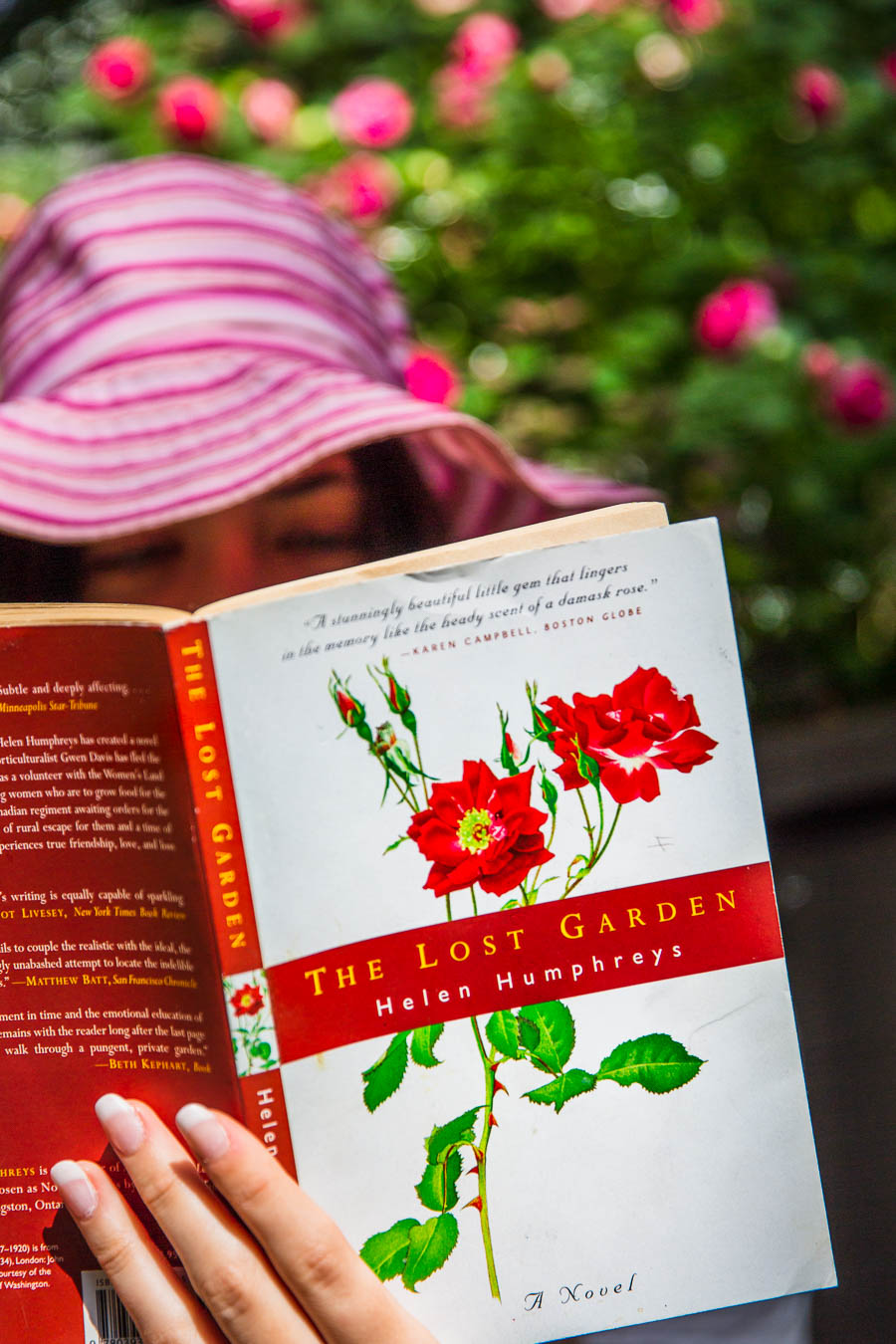~The Lost Garden Helen Humphreys A slender, beautifully written and lyrical story of horticulturist Gwen Davis who flees London during the Blitz to take charge of a group of Land Girls on a rundown estate on the Devonshire coast, which also happens to have a requisitioned stately home inhabited by a regiment of Canadian soldiers. Upon arrival, Gwen, somewhat socially awkward, struggles to connect with people and, feeling lonely, takes solace in bringing back to life a secret abandoned garden that’s she’s discovered. Over time, Gwen softens to those around her and begins to form deep connections with the girls and the soldiers as tragedy plays out against the backdrop of war. It’s a melancholy story, eloquent and pensive which juxtaposes, with quiet strength, the beauty which can be found amidst the ugliness of war, the love found amidst so much loss and the energy of life edging so sharply against the sadness of death.
~The Last Garden in England Julia Kelly In 1907 Venetia Smith, a woman ahead of her time, designs a garden for a wealthy couple at Highbury House. During WWII, its current owner, newly widowed Diana Symonds, sees the house requisitioned as a convalescent hospital and its gardens turned into vegetable patches. In the present day, passionate gardener Emma Lovett is hired by Highbury’s new owners to restore the gardens to their former glory. Told in three timelines, this is the story of three women, their loves and losses, connected not only by a garden but by secrets untold and tragedies endured, all of which is brought to light by Emma as she digs into the past in an attempt to recreate the gardens as closely to the original as possible. It’s a Kate Morton-ish kind of book and although it lacks her depth, is still a solidly written and pleasant comfort read which has the added bonus of some really nice gardening details.
~The Victory Garden Rhys Bowen In 1918 Emily Bryce turns 21 and finally gets to defy her parents and volunteer for the war effort, joining the Land Girls. From an upper crust background with the accent to prove it, Emily works hard to establish herself as one of the gang, winning over her fellow volunteers. She also wins the love of a cheeky Australian airman. When they become engaged they make plans to move to Australia as soon as the war ends, but alas, he dies before this can happen. Emily, meanwhile, finds herself pregnant, her parents disown her and now she must scrabble to take care of herself while grieving her loss. She ends up in a small cottage on the grounds of a Devonshire estate where she will help tend the grounds. In an old trunk in the cottage she discovers some long forgotten journals of a medicine woman which inspire her to grow the herbs and replicate the remedies. It’s formulaic but nicely written. If a pleasant escape to a quaint English village and a gentle story about female friendships within a war setting appeals, then you should enjoy this.
~Life In The Garden Penelope Lively A languid and philosophical look at gardening throughout history, art and literature. Lively takes a look at gardens in writings by such authors as Jane Austen and Nancy Mitford and talks about Vita Sackville-West and her famed gardens at Sissinghurst. Also part memoir, she reminisces about the gardens of her childhood home in Cairo, her grandmother’s Somerset garden and her own small urban garden in London. There’s a chapter on style in the garden and another on fashionable gardens. Yet another discusses the relationship of gardening to the passage of time. It makes for an interesting meditation on all things garden with writing that can be both elegant and witty. The only problem is that there is an underlying vibe of snobbishness and pretension which I struggled with and certain parts that were dry and, dare I say it—downright boring. There, I said it.
~Old Herbaceous The gentlest and sweetest of stories about Bert Pinnegar, a man who is left on a cottage doorstep as a baby and is taken in and raised by the family who lives there. He goes on to develop a love of wild flowers through a kind teacher and then becomes head Gardner at a “Big House” in a quiet English village. The book takes us through the stages of his life, from young Herbert to Bert, to Mr. Pinnegar to the rather cantankerous Old Herbaceous. Along the way he tends to the garden of the manor house, providing its mistress with spectacular hot house morning glories upon request and then surprising her with strawberries in April. And in the background the years roll by – from the 1880’s through the Edwardian Age and into each of the World Wars. What the story lacks in depth it makes up for in charm and gentle humor and I can guarantee that a cup of tea, a biscuit and a couple of hours spent reading this short book will go a long way to setting the world to rights.
~The Gardens Of Evening Mists Tan Twan Eng Ok, so set in England this is not, but this is such an unbelievably beautiful story that I just had to include it. It is set in Malaysia and takes place in three timelines—the current day of the mid 1980’s, the 1950’s and WWII, where our protagonist, Yun Ling was interred in a Japanese POW camp. When her sister dies there, Yun Ling, the camp’s sole survivor by war’s end, travels to Yugini, a Japanese garden to ask its designer and former gardener to the emperor of Japan, Aritomo, to design a garden in memory of her sister. While Aritomo refuses, he does agree to take her on as an apprentice so she can design her own. And so begins an exquisitely ethereal tale which juxtaposes not only the beauty of a garden against the horrors of war but also the joy and pain of both remembering and forgetting – at the book’s start Yun Ling longs to forget and by its end she longs to remember. There’s a lot going on here with the multiple storylines shifting back and forth, the complexity of politics, the ugliness of war, the beauty of the ancient arts of tattooing and woodblock printing, love, guilt, redemption—but it’s also quietly contemplative and written in excruciatingly elegant prose that forces you to frequently pause and re-read.

